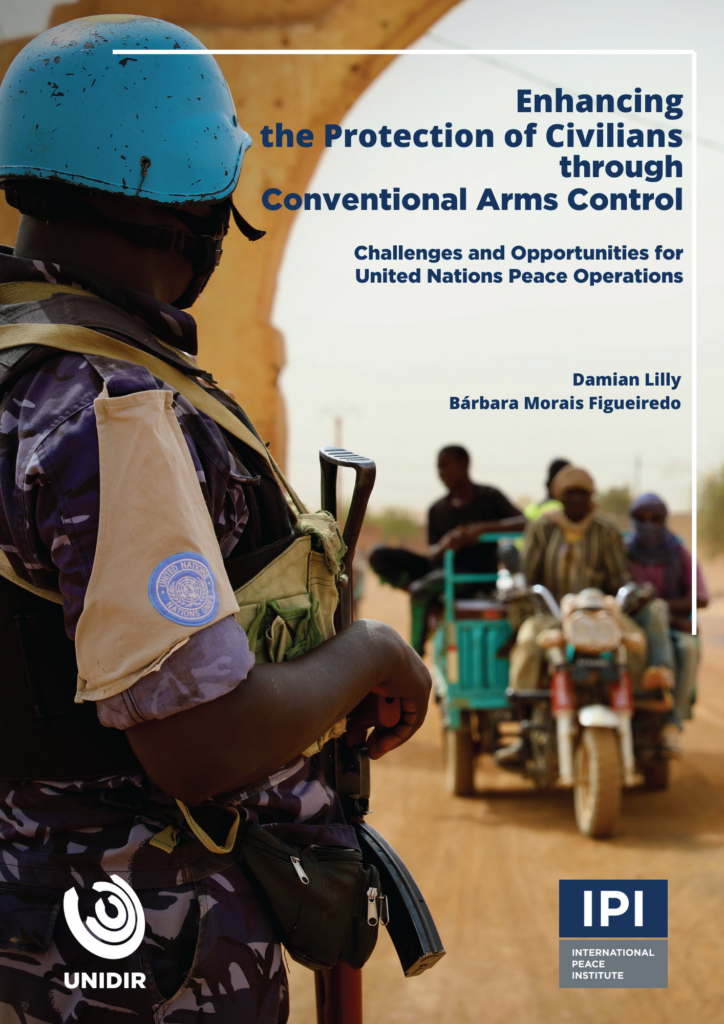Conventional arms control and disarmament efforts have historically been framed as a humanitarian cause to limit human suffering. However, activities with an arms control component have only featured to a limited extent within the protection of civilians (POC) mandates of United Nations peace operations. Both issues feature on the agenda of the United Nations Security Council which mandates missions, but the linkages between the two have not been well explored at policy, strategic and operational levels.
Produced in conjunction with the International Peace Institute, this brief provides an analysis of the actual, and potential, contribution of conventional arms control and related activities to POC within the context of United Nations peace operations – both peacekeeping operations and special political missions (SPM). There has been limited research conducted on this topic and it has been addressed in only a cursory manner in relevant policies, guidelines, and strategies.
This work therefore attempts to demonstrate the existing linkages between these two mandated tasks, as well as to pinpoint some of the barriers and challenges to why conventional arms control has not featured more fully within the POC efforts of missions. It then identifies the relevant entry points based on concrete examples of how arms control-related activities can be better leveraged by United Nations peace operations to ensure a more effective protection of civilians.
Sponsor Organizations: Donors: Governments of Ireland, the Netherlands, Switzerland and the United Kingdom / Partners: International Peace Institute (IPI)
Citation: Damian Lilly and Bárbara Moraes Figuerado (2022) "Enhancing the Protection of Civilians through Conventional Arms Control: Challenges and Opportunities for United Nations Peace Operations", UNIDIR and International Peace Institute, Geneva, Switzerland. https://doi.org/10.37559/CAAP/22/PACAV/01
